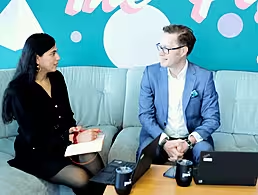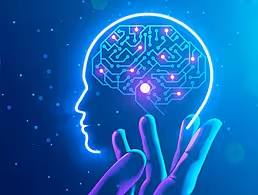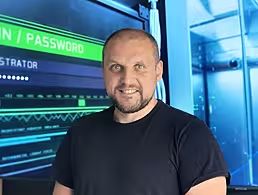Paul Fitzgerald tells us how he steered his career in a new direction and found that skills from engineering are well suited to strategy consulting.
PwC ranks as the second-largest professional services network in the world. Yet, in such a large company, it is the highly collaborative way of working with his team that Paul Fitzgerald loves most.
Fitzgerald graduated from Dublin City University with a degree in mechanical engineering. From there, he spent eight years working in Formula 1, becoming a five-time world championship-winning aerodynamics design engineer.
He later completed an MBA and moved back to Ireland in 2019, when his career took a turn toward strategy consulting.
Here, he tells us more about what’s involved in his present role as a strategy consulting manager at PwC, and how his previous engineering skills have transferred over.
‘The mindset and skills required of an engineer in a high-pressure environment are very similar to that of a strategy consultant’
– PAUL FITZGERALD
What is your role within PwC?
I’m a manager within the strategy consulting team.
If there is such a thing, can you describe a typical day in the job?
The great thing about my role is there is no typical day. It ranges depending on the project or client that I’m working with.
If I was to have a typical day it would start with a team catch-up, something that I think is really important in a remote working context. We will discuss our planned work for the day, including any issues or queries. Depending on the project, I might have some data modelling work to progress, as well as developing insights from the data to present to the client. During the day, I may have a few calls with either the client or my team to go through the work to date. On top of this, I might have some training to do or proposals to build for future work opportunities with prospective clients.
I think it’s one of the most enjoyable parts of my role that no day is the same.
What types of projects do you work on?
There is a vast range of projects that I work on. We are a firm where helping companies to implement digital transformation is front and centre. We have invested hugely in our own journey to become one of the most digitally enabled firms of our time.
Right now, I am working in the healthcare sector. Other projects I’ve worked on range from working with public and private bodies to performing due diligence of a firm on behalf of a prospective buyer.
There are very few industries and strategy-based projects that we as a team don’t work on.
What skills do you use on a daily basis?
They vary from technical skills, such as data analysis, interpretation and simplification of complex information, to soft skills, such as knowing how and when to communicate, including keeping clients abreast of project developments and research skills.
What is the hardest part of your working day?
One of the biggest challenges during the working day is something that I really enjoy about my role. It’s the continuous problem solving and trying to understand the unknowns when working with clients.
Another aspect that can be challenging is switching from one piece of work to another in a short period of time. For example, I could be working on a specific area of a project, but need to assist other team members with a completely different subject matter at short notice. It requires the ability to multi-task and be able to switch very quickly to different tasks.
Do you have any productivity tips that help you through the working day?
For me, I work best in the morning. I try to plan any meetings later in the day, where possible, so I can focus on the more data-based work first thing in the day. For work that requires a lot of focus, I’ll block out a few hours in my calendar to give it full attention. I know everyone is different, so I would advise people have a think about when they are most productive and why, and try to build a schedule around that.
A big thing for me is that I try to get out for a run a few times each week during the day. It’s a great way to reset. It’s amazing what a bit of exercise and fresh air can do for problem solving.
When you first started this job, what were you most surprised to learn was important in the role?
Coming into my role from an engineering background, I was apprehensive about how much of my skills were transferable. I was pleasantly surprised that the mindset and skills required of an engineer in a high-pressure environment are very similar to that of a strategy consultant. Being able to think quickly, process complex data in a short period of time, and come up with creative solutions are some of the fundamental skills required for both engineering and consulting.
How has this role changed as this sector has grown and evolved?
Strategy consulting evolves constantly. Something that has been a huge step forward is the use of digital solutions for solving complex problems. Technology is becoming even more beneficial in both a reporting sense and a tool for modelling pathways for clients. There is an ever-growing importance to focus on big data as a primary source of insight. Our team has been able to adapt to this trend with both our staff skill mix and our digital tools. Artificial intelligence is already playing a huge role in our work.
What do you enjoy most about the job?
For me, the best thing about my role is that it’s far from boring. No one day is the same, and that’s a winner.
I’ve found it’s been a huge learning curve for me. The opportunities to work with some of the most interesting companies are brilliant. Working within such a great team helps too.
We work extremely hard but there is a great social side to our team as well, despite Covid-19. That’s due to our highly collaborative way of working and our technology. But we do look forward to some physical meetings again when we are allowed!




